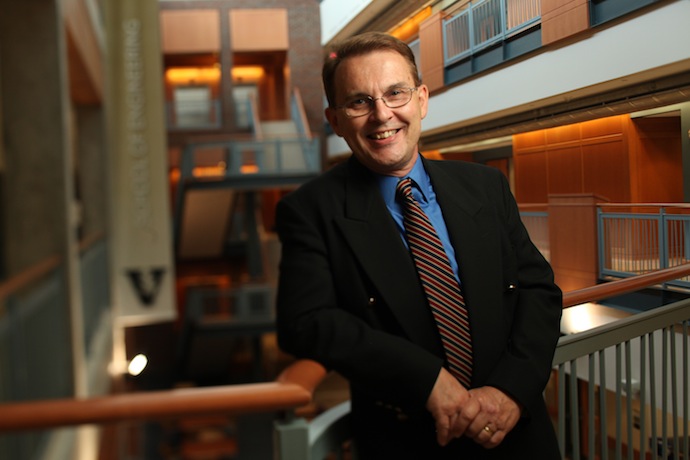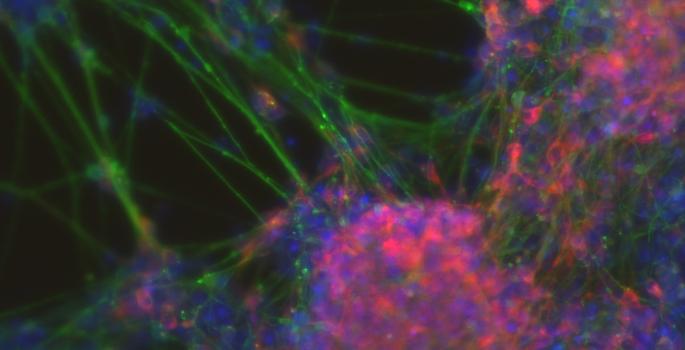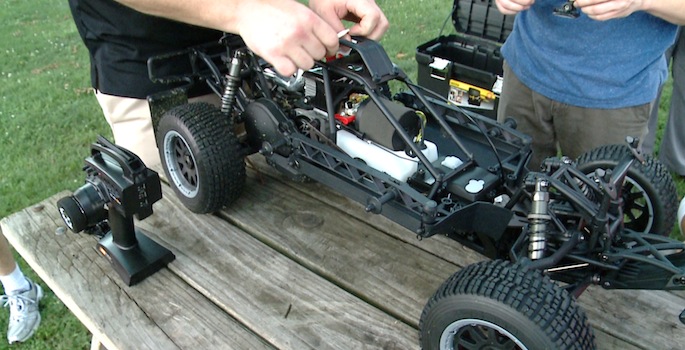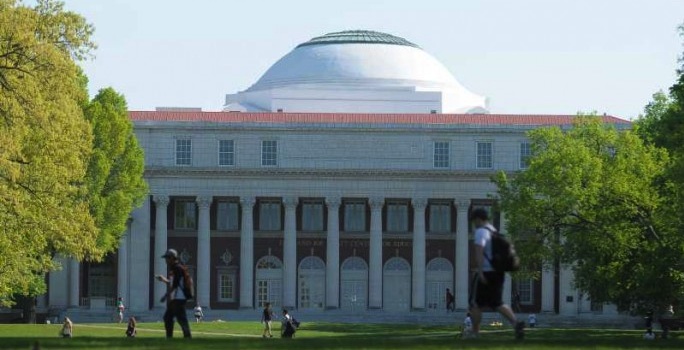Featured Research
-

Obama/Romney negative ads continue to strike out: Vanderbilt/YouGov surveys
Negative advertising may be obligatory in the presidential campaign, but it doesn't seem to be paying off this time around when it comes to changing voter's minds. “It looks like we are way past much bang for the buck with these ads,” said John Geer of Vanderbilt University. Read MoreOct 26, 2012
-

The Tennessean: Vanderbilt’s new engineering dean ready to tackle big societal problems
As the new dean of the Vanderbilt School of Engineering, Philippe Fauchet sees his role as one that stretches far beyond the university. Read MoreOct 22, 2012
-

The Tennessean: Vanderbilt team details TN meningitis death
The New England Journal of Medicine has published a detailed account by April Pettit and colleagues at Vanderbilt University describing one man’s rapid deterioration after receiving a tainted steroid injection for back pain from the New England Compounding Center in Framingham, Mass. Read MoreOct 22, 2012
-

Improved patient ‘handover’ process bolsters outcomes
Patient handovers matter. A lot. That’s the conclusion from Vanderbilt researchers who reviewed three years of patient data and found that major complications occurring within 24 hours after cardiac surgery were cut in half following the adoption of an improved handover process. Read MoreOct 18, 2012
-

Democrats dig Big Bird; Republicans not so much
At the moment, Republicans and Democrats can’t even agree on the appeal of a giant yellow Muppet. Democrats gave Big Bird a favorable rating by an 85 percent margin. Only 55 percent of Republicans held that view. Read MoreOct 12, 2012
-

VU scientists cheer Nobel Prize for stem cell research
Vanderbilt University scientists are cheering this year’s Nobel Prize in Medicine for recognizing the discovery that mature cells can be “reprogrammed” into other cell types — a finding which they said has electrified their work. Read MoreOct 11, 2012
-

One dominant debate not enough to put Romney over: Vanderbilt/YouGov
Despite Mitt Romney’s dominant performance in the first presidential debate, President Obama’s favorability rating has been hovering around 50 percent, not enough deterioration to turn the election around for the challenger. Read MoreOct 10, 2012
-

Undergrads virtually manipulate model car for fast design changes
The goal of the Adaptive Vehicle Make program is to develop software to test vehicle designs before they are built. Read MoreOct 5, 2012
-

Obsession with stock prices hurting economy: Vanderbilt professor
The fixation on maximizing shareholder value for stockholders at the expense of other stakeholders poses a serious threat to the American economy, said Vanderbilt Law School professor Margaret Blair. Read MoreOct 4, 2012
-

One of two Romney approaches offers his best chance: Vanderbilt analysis
Mitt Romney can still win the presidential election if he can convince Americans he has the best plan to reinvigorate the economy, according to analysis by Vanderbilt professor John Geer of two new ads released by Romney’s campaign. Read MoreOct 2, 2012
-

Dwindling undecided voters have lost much of their power
There now is only a small and ever dwindling chance that the remaining undecided voters might influence the outcome of the presidential election, said a Vanderbilt University political scientist. Read MoreSep 26, 2012
-

Former teachers’ return to classroom feeds workforce, gender differences prevalent
New research examines what factors lead to teachers re-entering the teaching profession after exiting. Read MoreSep 26, 2012
-

Sustaining, ‘scaling up’ effective practices of urban high schools focus of research
Researchers are examining what characteristics make some large, urban high schools particularly effective with low-income and minority students. Read MoreSep 24, 2012
-

Romney not hurt much in aftermath of ’47 percent’ clip: Vanderbilt survey
The video of Mitt Romney dismissing 47 percent of Americans as unreachable by Republicans had little effect on swing voters who will probably decide the Nov. 4 election. Read MoreSep 20, 2012
-

Steps toward ending gridlock in Congress
Hope is being offered by Vanderbilt professor Marc Hetherington and a colleague that generational turnover and a few adjustments now could cause the end of gridlock in Congress in the long run. Read MoreSep 19, 2012
-

New Obama attack ad fails to make impact
A new attack ad that chides Mitt Romney for refusing to release more of his tax return information is failing to spark much of a reaction. Read MoreSep 18, 2012
-

Sustaining Tennessee: Challenges and opportunities for making good decisions
The effects of climate change will have widespread impact on the state, but there are opportunities to offset it by incorporating “climate-friendly” and “climate-resilient” actions into routine management decisions, say scientists from Vanderbilt University, Oak Ridge National Laboratory, University of Tennessee at Knoxville, University of Memphis and the Tennessee Department of Health in a new report. Read MoreSep 17, 2012
-

Sex matters: Guys recognize cars and women recognize birds best
Women are better than men at recognizing living things and men are better than women at recognizing vehicles: That is the unanticipated result of an analysis of data from a series of visual recognition tasks collected by Vanderbilt psychologists. Read MoreSep 17, 2012
-

Romney appears to be losing traction with swing voters: Vanderbilt survey
A new survey from the Vanderbilt University/YouGov Ad Rating Project shows that the latest attack ad aimed at President Obama is not working as well as previous efforts. Read MoreSep 13, 2012
-

Study tracks potential coverage gaps under Affordable Care Act
An analysis of Massachusetts’ health care reform program by a Vanderbilt researcher indicates insurance gaps may remain as the Affordable Care Act (ACA) expands insurance coverage beginning in 2014. Read MoreSep 13, 2012